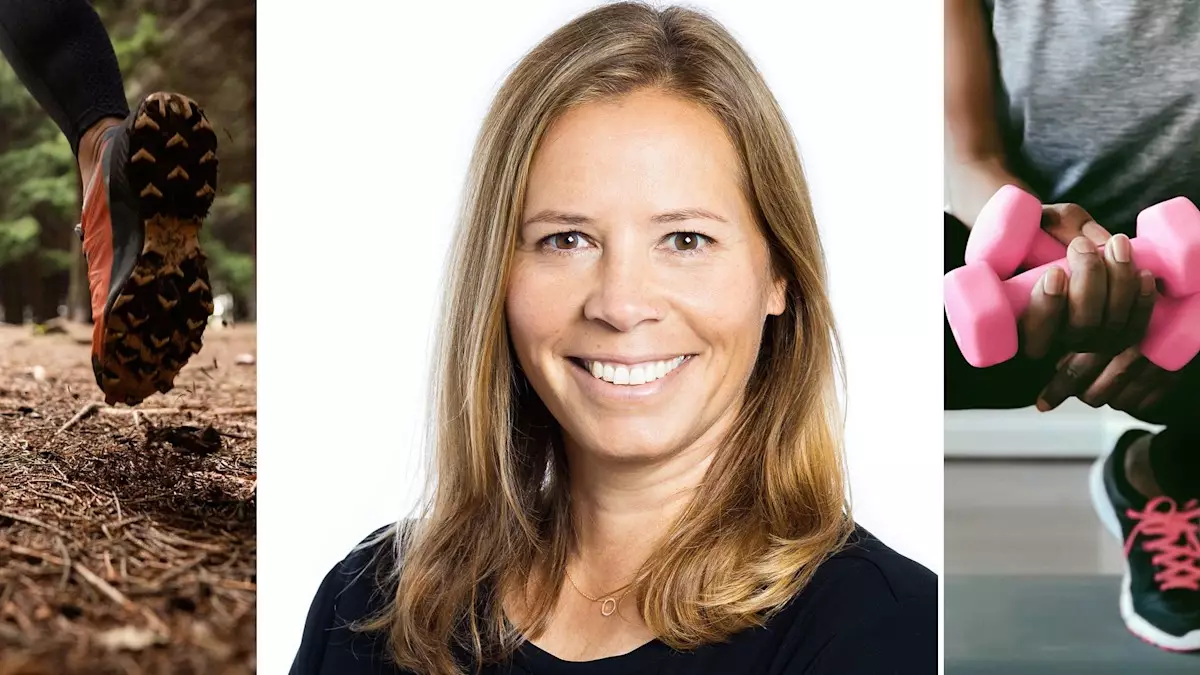The experience of menopause often comes as a shock, particularly when it strikes earlier than expected. For 51-year-old Kerstin Lutz, entering menopause at the age of 40 felt like being uprooted from a well-structured life. As the CEO of the Billie Jean King Cup, an event that celebrates women’s tennis, she is both a leader and a role model. Her life was built around the discipline of sports, but the onset of perimenopause brought with it a whirlwind of physical discomfort and emotional unpredictability that challenged her usual sense of control.
Kerstin’s initial symptoms manifested as severe hot flashes, unexpected mood swings, and debilitating fatigue. The realization that these episodes were linked to perimenopause did not arrive until a doctor suggested hormonal testing. Reflecting on her ignorance of the term “perimenopause,” Kerstin shared, “I hadn’t even heard of the word at that point.” It was not simply a lack of knowledge that hindered her; it was the sudden nature of these bodily changes disrupting her life that added to her distress. The severity of her hot flashes often caught her off guard during professional engagements, leading her to believe that something was gravely wrong with her health.
Once diagnosed, Kerstin’s doctor was direct about the necessity of hormone replacement therapy, emphasizing it as a crucial step. This guidance made her aware that early management of menopause was critical, especially with her young age and the accompanying risk of bone density loss. Fortunately, Kerstin’s circumstance of not wanting children allowed her to concentrate on her well-being without additional stressors.
The turning point for Kerstin lay in her proactive approach to electrifying her health journey. Engaging in conversations with her colleagues, who are some of the most skilled athletes globally, inspired her. Their insights proved invaluable, leading her to incorporate weightlifting into her routine. “I can’t live without it,” she stated, highlighting not just the physical benefits of muscle strengthening but also the psychological boost it provided. Kerstin discovered that physical training enhanced not only her strength but also her posture, balance, and overall mood.
In her quest for a triumphant experience through perimenopause, Kerstin established a transformative daily regimen centered on exercise. Every morning became a dedicated time for physical activity, from weightlifting to invigorating hikes. This shift served as both a mental and emotional reset, helping her to greet the day with a more positive outlook and a set focus.
The athlete’s mindset shaped Kerstin’s approach, urging her to embrace forward-thinking. Rather than dwelling on what menopause may have taken from her, she concentrated on setting and achieving personal goals. In her reflection, she noted the importance of adaptability in sports, which she was able to apply to her own life. The process of tackling manageable goals—such as increasing her lifting capacity or exploring a new hiking path—became a source of accomplishment and fulfillment.
Moreover, just as athletes lean on one another for morale and motivation, Kerstin found strength in her relationships with family and friends. She emphasized the significance of support networks in weathering the emotional complexities of menopause. Simple gatherings or heartfelt conversations—what she referred to as “therapy”—provided her with needed interactions and companionship.
As she navigated this transformative phase, Kerstin emerged not just as someone managing symptoms but as a figure embracing empowerment and self-discovery. Her journey reinforces a valuable lesson: there is no one-size-fits-all approach to menopause. Each person’s experience is unique, and finding the right methods—be it through exercise, mindfulness, or community support—is essential for enhancing one’s quality of life.
Kerstin’s story is a testament to resilience amid change. By advocating for her health, leaning into physical fitness, and surrounding herself with supportive relationships, she flipped potential adversity into a journey of empowerment and triumph. For anyone facing similar hurdles, the message is clear: embrace movement, seek support, and carve out a path filled with personal goals and achievements.

